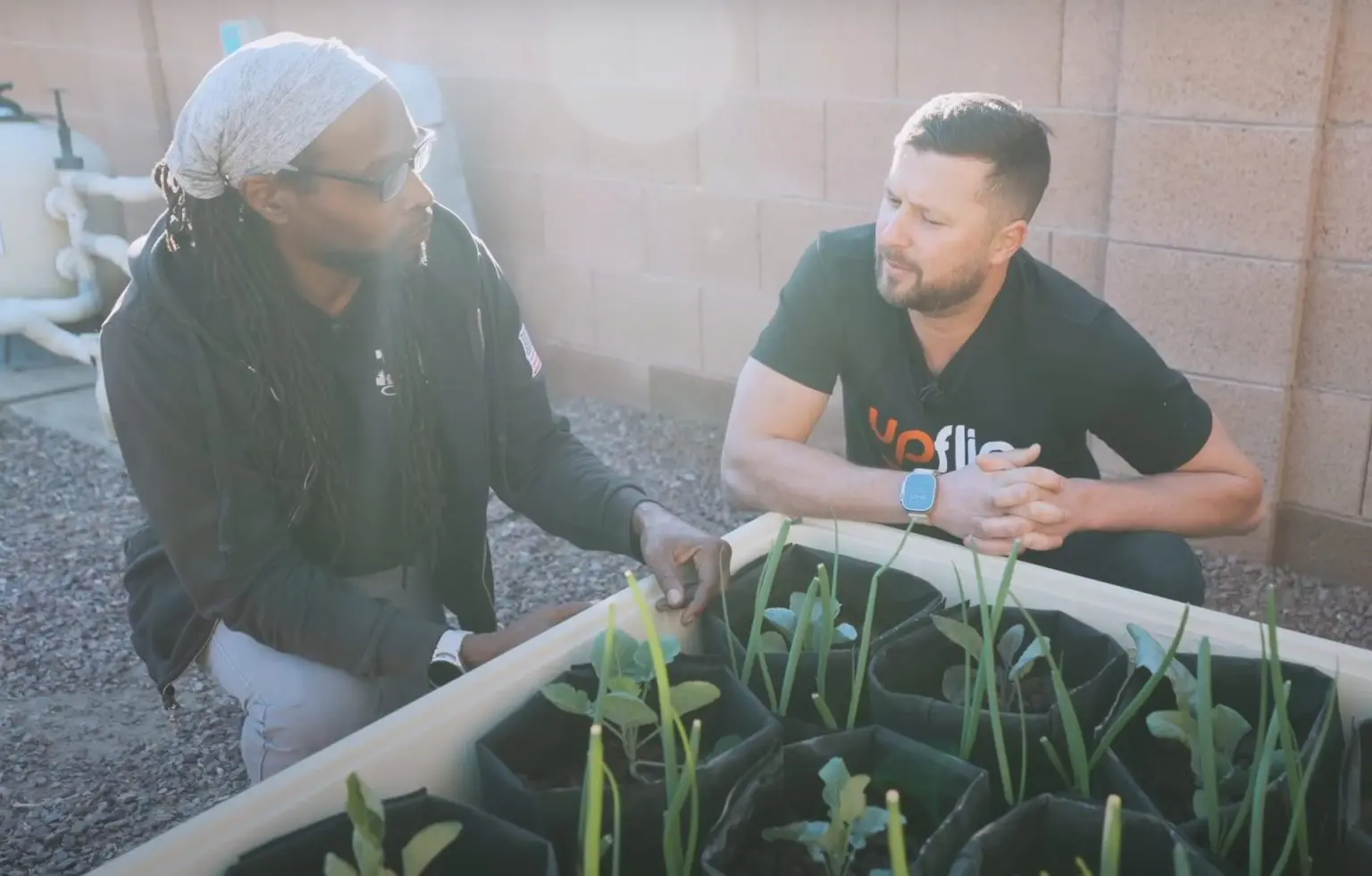The concept of turning a backyard into a profitable business venture might sound far-fetched, but with sustainable gardening systems, it’s not only possible – it’s happening right now. UpFlip recently interviewed an entrepreneur and his sustainable gardening business pulling in $10k a month. Through innovative approaches to growing food without soil, this entrepreneur created a successful business with minimal startup costs and impressive returns.
As someone who has witnessed the transformation of sustainable gardening from a hobby to a profitable venture, UpFlip experts can attest that this business model offers unique opportunities for aspiring entrepreneurs. The combination of space-efficient design, minimal maintenance requirements, and high yield potential makes it an attractive option for those looking to start their own business.
The Power of Sustainable Growing Systems
Traditional gardening methods come with significant limitations – soil quality concerns, pest problems, and lengthy growing cycles. Sustainable gardening systems eliminate these issues through three main approaches:
- Hydroponics: Using mineral nutrient solutions in water without soil
- Aquaponics: Combining fish and plant cultivation in a symbiotic environment
- Aeroponics: Growing plants in an air or mist environment
These systems utilize UV technology to maintain clean water and prevent algae growth, resulting in healthier plants and faster growth cycles. Plants can absorb up to 10 times more nutrients than traditional soil-based methods, accelerating growth and increasing yield significantly.
Starting Small
The beauty of sustainable gardening lies in its accessibility. A basic setup can start with as little as $45 in materials from a local hardware store. Within 8 weeks, these systems can begin generating revenue through various streams:
- Selling fresh produce to local restaurants and grocers
- Creating and selling sustainable gardening systems
- Providing consultation services
- Offering educational programs and workshops
The Business Model Breakdown
Let’s examine the numbers: A single living wall system, costing approximately $45 in materials and requiring just 20 minutes to assemble, can sell for $800. These systems can produce up to 64 salads every few days, with each salad selling for $4-5.
The maintenance requirements are surprisingly minimal. After the initial setup and learning period, most systems require only about 2 hours per week for cultivation and harvesting. The systems are largely self-sustaining, making them ideal for entrepreneurs with limited time.
Beyond Local Markets
The potential for growth extends far beyond local communities. Sustainable gardening businesses can expand into:
- International consulting
- System design for large-scale projects
- Educational programs and workshops
- Custom solutions for residential and commercial clients
Community Impact and Social Responsibility
This business model addresses critical issues like food deserts and community nutrition. By establishing local growing systems, entrepreneurs can create sustainable food sources while building profitable businesses that serve their communities.
Frequently Asked Questions
Q: How much space do I need to start a sustainable gardening business?
You can start with as little as a few square feet. Systems like the Brooklyn Bridge or living walls are designed for small spaces and can even be installed indoors.
Q: What is the average time to see a return on investment?
With proper planning and execution, you can start seeing returns within 8-12 weeks of setting up your first system.
Q: Do I need previous gardening experience?
No prior experience is necessary. The systems are designed to be user-friendly and come with clear instructions and support.
Q: What are the main revenue streams in this business?
Revenue can come from selling produce, system installations, consulting services, and educational programs.
Q: Is this business model sustainable during economic downturns?
Yes, the business has proven to be recession-resistant as food production remains essential regardless of economic conditions.

